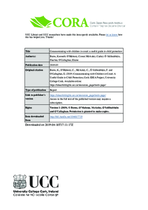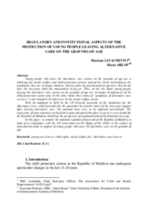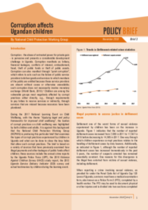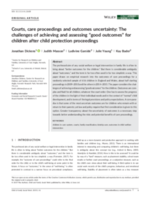A case study of policy inaction: Young people transitioning from out of home care in Victoria
This paper explores the leaving care policies of the Australian state of Victoria, and the reasons for policy "inaction" on providing post-care support to youth leaving care until the age of at least 21 years old.




